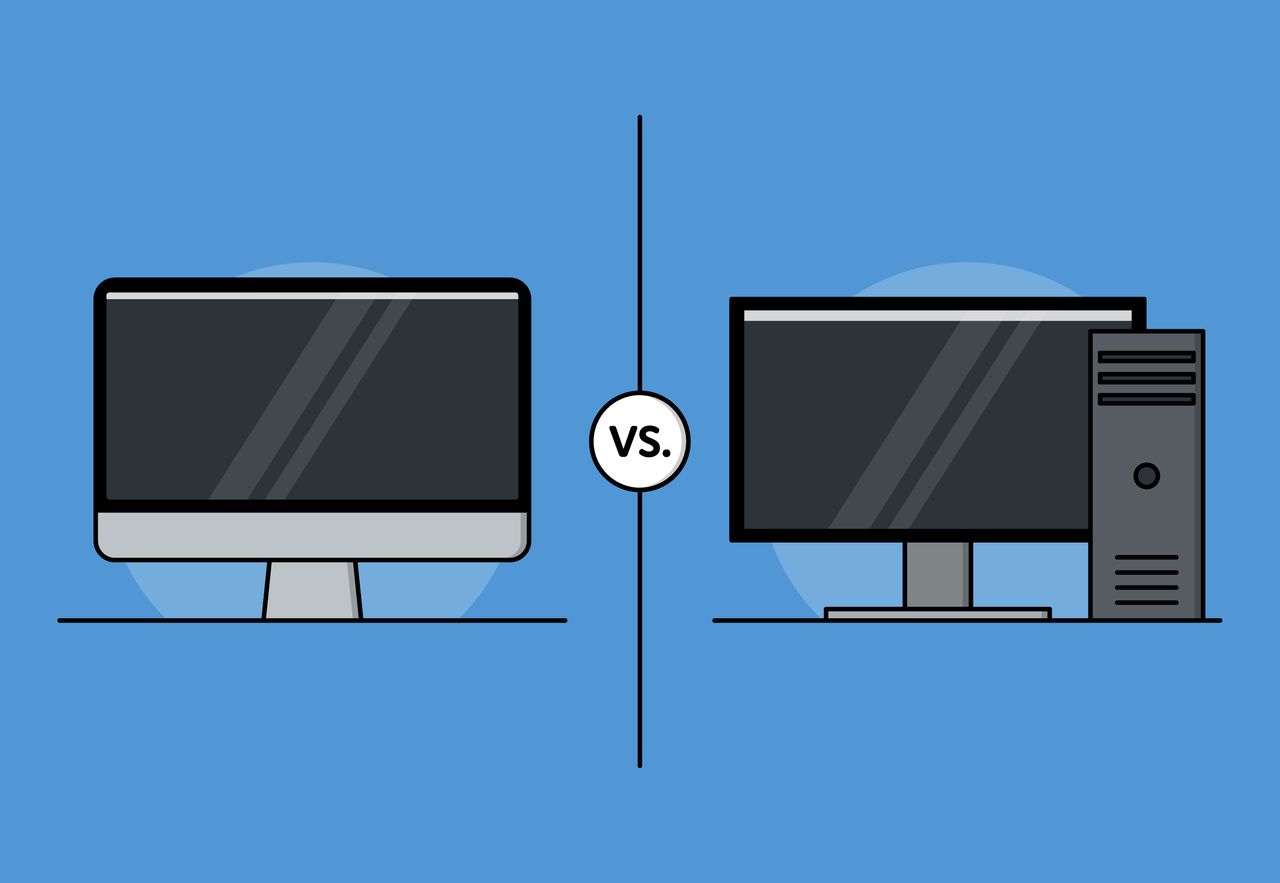If you went anywhere near a TV in the mid-noughties, chances are you'll remember the Mac vs PC adverts - the UK version featured David Mitchell (PC) and Robert Webb (Mac) on top form. At the time, the Mac vs. PC debate was at its peak - Apple was working to expand its market share beyond its niche and Microsoft was starting to see its first real competition since the 80s.
Things have changed since then, but there's no doubt that "Mac or PC?" is still a question that every business needs to answer.
In this week's Friday Face-Off, we look at the arguments for deciding whether or not to align your workplace with Macs, or PCs?
Windows PCs
PCs remain the dominant force in the computer market, with non-Apple devices accounting for 93% of all desktop computers. About half of desktop PCs run Windows 7, with only a quarter of PCs using the newest iteration of Windows, Windows 10 - despite Microsoft offering a free upgrade.
The market for PCs is extremely competitive, with brands like Lenovo, HP, Dell, Acer, Asus all holding significant chunks of the market. Windows-based PCs
From a business perspective, PCs have numerous benefits:
First, cost. There's no doubt that PCs are far cheaper than Macs on a like-for-like basis. As long as there's healthy competition between PC manufacturers, this will always be the case. If cost is your number one concern, Windows-powered computers are the obvious choice.
Next, PCs are far more customisable than Macs. The range of options available on the market means that you can choose a PC that meets your business needs without having to pay extra for components or extra power that you don't need.
If you have even a little technical know-how, you can easily upgrade your PC yourself - or even build a PC from scratch. This can significantly cut hardware costs. Macs aren't designed to be tinkered with in the same way.
In the past, opting for a Windows machine meant that you had access to a far wider range of software than if you'd have opted for a Mac. Although the gap in software availability is closing, many specialist software packages remain limited to Windows operating systems. You don't need to worry about incompatible software if you go for a Windows PC.
Finally, your employees (particularly older employees) will be more familiar working with Windows devices. This'll save you a little time when it comes to training new staff.
Macs
Although your options are more limited than Windows-based devices, Apple produce a range of Macs including iMac (powerful desktop computers), Mac Minis (small computers that you need to connect your own monitor and peripherals with, MacBooks (laptops), MacBook Air (lightweight, entry-level laptops), and Macbook Pro (high-end laptops).
Many businesses (including RotaCloud) opt for Macs instead of Windows PCs. Here are some of the reasons for our decision:
First up, usability and design. macOS is far more user-friendly than Windows, and it's fast and reliable - "it just works." Macs are simply more enjoyable to use. This impressive design extends to the hardware. With full control over hardware, Apple products boast top-notch build quality. You can't guarantee that with a PC.
Another important consideration for businesses is security.Given the relatively small numbers of Macs, it should be no surprise that there's much less malware targeting them. Of course, you can't let your guard down completely when it comes to cybersecurity, but if you opt for Macs you'll have fewer malware issues to worry about.
When you first set-up your Mac, you'll find plenty of software already pre-installed. Instead of the bloatware you might expect on Windows PCs, Macs come with useful software like Photos, iMovie, Pages, Numbers and Keynote already installed.
If you have a problem with your Mac, you can count on receiving high-quality support. There's no chance you'll be bounced between the manufacturer and the OS provider - they're one and the same!
One final point - you can use Bootcamp to run Windows on a Mac, but you can't run macOS on a Windows PC.
The Verdict
You may have a strong preference when it comes to Macs or Windows PCs, but this age-old debate is becoming increasingly irrelevant.
That's because so much of the software we use as businesses is now cloud-based- only requiring a web-browser to operate. That means it's automatically compatible with any operating system.
It's also easier than ever to transfer files between Macs and PCs, thanks to cloud storage solutions like Google Drive.
Our verdict? Use whatever you prefer, and your budget allows.
Macs are definitely more enjoyable to use - that's why we use them at RotaCloud - but Windows PCs can be excellent options for companies that want complete control over their hardware and have a smaller tech budget.
Want to share your thoughts on more office hot topics? Check out previous Friday Face-Offs and share your thoughts!

